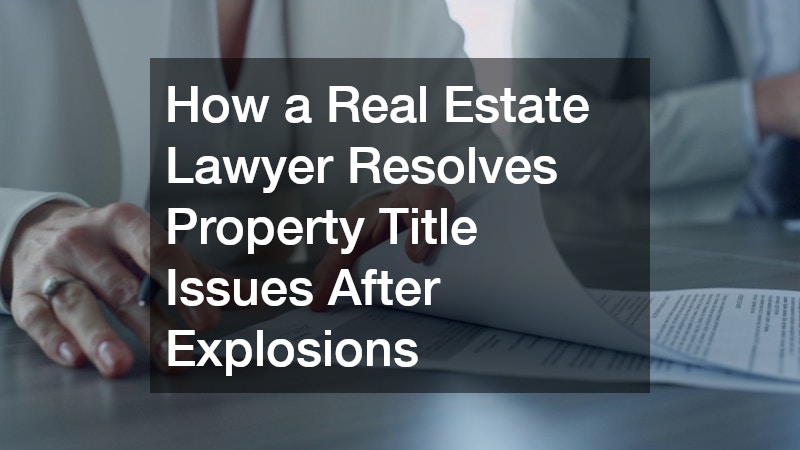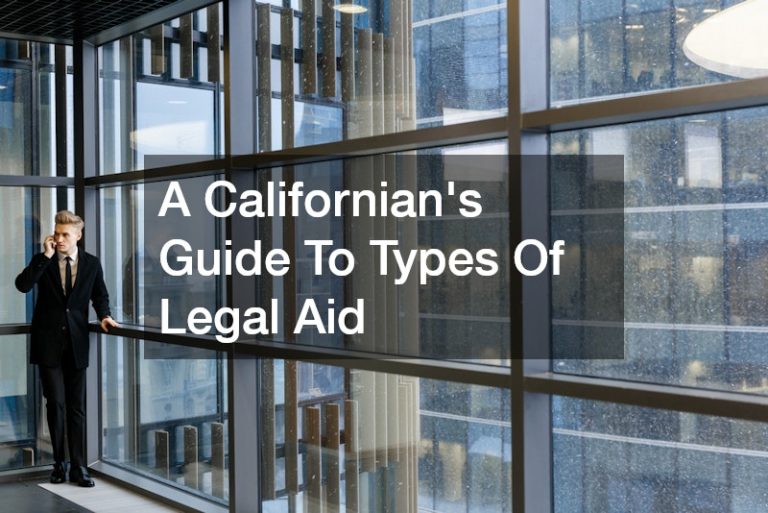
- Explosions can cloud property titles through liens, disputes, or destroyed records.
- Real estate lawyers resolve issues using title searches, quiet title actions, and settlements.
- Multiple parties—insurers, contractors, and governments—often complicate title resolution.
- Choosing a lawyer with disaster-related title dispute experience is essential.
- Preventive steps like title insurance and proactive legal reviews reduce future risks.
Why Explosions Complicate Property Ownership

Explosions—whether in industrial facilities, construction zones, or workplace environments—can have far-reaching consequences beyond the immediate physical and financial damage. One often overlooked but critical consequence is the effect on property titles. Property titles establish legal ownership, but when explosions occur, they can trigger disputes, encumbrances, or “clouds” that make it difficult for owners to prove clear rights to their land or buildings. In these circumstances, many property owners find themselves looking for a real estate lawyer that resolves property title issues following workplace explosions to restore clarity and protect their ownership rights.
The scale of the problem is not small. According to the U.S. Bureau of Labor Statistics, workplace explosions accounted for more than 80 fatal occupational injuries in 2022 alone.¹ These incidents not only take lives but also cause collateral damage to surrounding properties. Similarly, the National Fire Protection Association (NFPA) reports that industrial and structural explosions contribute to billions of dollars in direct property damage annually.² Property owners impacted by these disasters often discover that their title records are contested, unclear, or tied up with multiple claims.
In these high-stakes situations, property owners frequently search for solutions by looking for a real estate lawyer that resolves property title issues following workplace explosions. Such a lawyer not only clarifies ownership but also helps navigate insurance claims, government investigations, and disputes with contractors, insurers, or neighboring property owners.
This article explains, in detail, how a real estate lawyer helps resolve title complications caused by explosions. It provides step-by-step guidance, discusses common challenges, and offers preventive strategies to protect property rights.
Understanding Property Title Issues After Explosions
Property titles serve as proof of ownership. A “clear title” means no disputes, liens, or encumbrances. Explosions disrupt this clarity in multiple ways:
-
Clouded Titles: Explosions can lead to competing claims on ownership. For instance, if insurers or creditors place liens due to unpaid debts or safety violations, the title may be clouded.
-
Boundary Disputes: Structural damage, shifting land, or debris spread can blur property lines. Owners may find themselves disputing where their property ends and a neighbor’s begins.
-
Unrecorded Liens or Claims: Contractors, environmental cleanup companies, or government agencies might file claims for costs, leaving unresolved debts tied to the property.
-
Destroyed Records: Explosions may damage courthouses, municipal offices, or private storage, making it difficult to prove ownership through existing documentation.
For homeowners and businesses alike, these complications can delay sales, prevent refinancing, and block insurance payouts. When looking for a real estate lawyer that resolves property title issues following workplace explosions, it’s critical to choose one experienced in both title disputes and post-disaster litigation.
Legal Implications of Explosions on Property Ownership
Explosions affect property ownership in ways that go beyond physical damage. Legal ramifications often include:
-
Property Rights vs. Liability: If an explosion originated from your property, neighbors may claim damages, potentially attaching liens to your title until the dispute is resolved.
-
Ownership Challenges: Families, business partners, or investors may contest ownership rights, especially if records were damaged.
-
Government Investigations: Agencies like OSHA or local zoning boards may place restrictions or fines that encumber the property. These legal actions can complicate title clearance.
-
Insurance Involvement: Insurers sometimes deny claims or assert subrogation rights, leading to disputes that cloud property titles.
Without legal help, these issues can spiral into long-term disputes that hinder financial recovery.
The Role of a Real Estate Lawyer in Title Resolution
When explosions complicate property ownership, a real estate lawyer becomes essential. Attempting to resolve title issues independently is risky because property law is complex, and mistakes can lead to permanent loss of rights.
A lawyer’s responsibilities include:
-
Conducting Thorough Title Searches: Reviewing property records for encumbrances, liens, and ownership disputes.
-
Quiet Title Actions: Filing lawsuits to establish clear ownership when claims overlap.
-
Negotiating Settlements: Engaging insurers, lienholders, contractors, or government agencies to remove or settle claims.
-
Correcting Records: Ensuring updated and accurate documentation is recorded with the county or state.
-
Litigation Support: Representing property owners in court when disputes cannot be resolved amicably.
Example: After a warehouse explosion, multiple contractors filed claims for unpaid work related to cleanup. The property owner’s lawyer identified duplicate claims, negotiated settlements, and filed a quiet title action to eliminate fraudulent encumbrances.
Step-by-Step Process a Lawyer Follows to Clear Property Titles
1. Initial Consultation & Case Review
-
Gathering documentation: deeds, insurance policies, inspection reports.
-
Assessing scope of explosion-related claims.
-
Advising on immediate steps to protect ownership rights.
2. Title Examination & Public Record Search
-
Reviewing county records for liens, encumbrances, or pending lawsuits.
-
Identifying inconsistencies in property boundaries or ownership history.
3. Identifying Liens, Claims, or Ownership Discrepancies
-
Categorizing claims: insurance, government fines, contractor disputes.
-
Evaluating validity of each lien or encumbrance.
4. Legal Actions
-
Filing quiet title actions to remove invalid claims.
-
Petitioning courts to correct boundaries.
-
Negotiating settlements to resolve debts tied to the property.
5. Filing & Recording Clean Title Documents
-
Ensuring finalized ownership records are filed with relevant authorities.
-
Obtaining title insurance confirmation once disputes are resolved.
6. Advising on Future Legal Protections
-
Encouraging regular title reviews.
-
Recommending enhanced insurance coverage.
-
Advising on estate planning or business structuring for additional protection.
Common Challenges in Resolving Title Issues After Explosions
Explosions introduce complex challenges, including:
-
Multiple Claimants: Contractors, neighbors, insurers, and local governments may all assert financial claims.
-
Destroyed Records: Proving ownership becomes difficult if deeds or legal documents are lost in the blast.
-
Environmental Concerns: Cleanup costs for hazardous materials often result in liens.
-
Cross-Jurisdictional Disputes: Explosions near property boundaries may involve multiple counties or states.
-
Prolonged Litigation: Courts may take months or years to resolve high-value disputes, delaying property sales or development.
A skilled lawyer helps prioritize which claims to address first and develops strategies to reduce delays.
How to Choose the Right Real Estate Lawyer for Title Issues

When looking for a real estate lawyer that resolves property title issues following workplace explosions, consider these factors:
-
Experience with Title Disputes: Lawyers familiar with quiet title actions and disaster-related claims provide stronger representation.
-
Knowledge of Property & Insurance Law: Explosions often involve overlapping legal areas.
-
Track Record: Seek reviews, testimonials, or case studies of similar disputes.
-
Local Expertise: State laws on property and title resolution vary widely. A local lawyer knows jurisdiction-specific rules.
-
Consultation Approach: A lawyer who explains processes clearly is invaluable during stressful disputes.
Preventive Legal Steps for Property Owners
To minimize risks of title complications after unexpected events like explosions:
-
Maintain Title Insurance: Ensures financial protection if disputes arise.
-
Regularly Review Property Records: Confirm ownership details remain accurate.
-
Consult Lawyers Proactively: Seek legal advice before disputes escalate.
-
Document All Transactions: Record easements, ownership transfers, or liens to prevent future challenges.
Real-World Case Examples
Case 1: Industrial Explosion and Boundary Disputes
A factory explosion shifted land boundaries, causing disputes with adjacent landowners. The lawyer filed a boundary clarification suit and worked with surveyors to re-establish property lines.
Case 2: Title Dispute After Workplace Accident
Following an explosion at a construction site, multiple insurers claimed rights to the damaged property. The real estate lawyer consolidated claims, identified invalid liens, and secured a court order to clear the title.
Lessons:
-
Timely legal intervention avoids financial loss.
-
Courts often favor well-documented claims backed by legal representation.
FAQs – Property Title Issues After Explosions
1. What is a clouded property title?
A title with unresolved liens, disputes, or claims preventing clear ownership proof.
2. How long does it take to resolve title issues after an explosion?
It can take weeks for minor disputes or years for complex multi-party litigation.
3. Can property insurance cover title disputes?
Standard policies rarely do, but title insurance or specialized endorsements may help.
4. What’s the difference between a title company and a real estate lawyer?
Title companies issue insurance and review records, while lawyers resolve legal disputes and represent owners in court.
5. How much does it cost to hire a lawyer for title resolution?
Costs vary—flat fees for simple actions or hourly rates for litigation. Some offer contingency arrangements.
6. Can a lawyer help if government fines or liens are placed on my property?
Yes. Lawyers negotiate with agencies, contest improper liens, and represent owners in appeals.
Conclusion – Protecting Your Property Rights After Explosions
Explosions bring unexpected complications to property ownership, often leaving titles clouded with disputes, liens, and boundary issues. For property owners, the most reliable solution is looking for a real estate lawyer that resolves property title issues following workplace explosions.
Real estate lawyers provide expert guidance, from conducting thorough title searches to filing quiet title actions and negotiating settlements. Their intervention ensures that property owners can protect investments, restore clarity of ownership, and move forward with confidence.
It’s important to remember that property title issues are not just administrative hurdles—they carry long-term financial and legal consequences. For example, according to the American Bar Association, unclear property titles can prevent sales, block refinancing, and expose owners to lawsuits.¹ Similarly, the Legal Information Institute at Cornell Law School emphasizes that quiet title actions are often the most effective way to resolve disputes when multiple claims exist.² The U.S. Department of Housing and Urban Development also notes that disputes involving liens and encumbrances can significantly delay property transactions if not addressed early.³
The key takeaway: act quickly. Title disputes worsen when left unresolved, especially after catastrophic events like workplace explosions. By consulting an experienced real estate lawyer early, property owners minimize risks, avoid costly litigation, and safeguard their property rights for the future.






